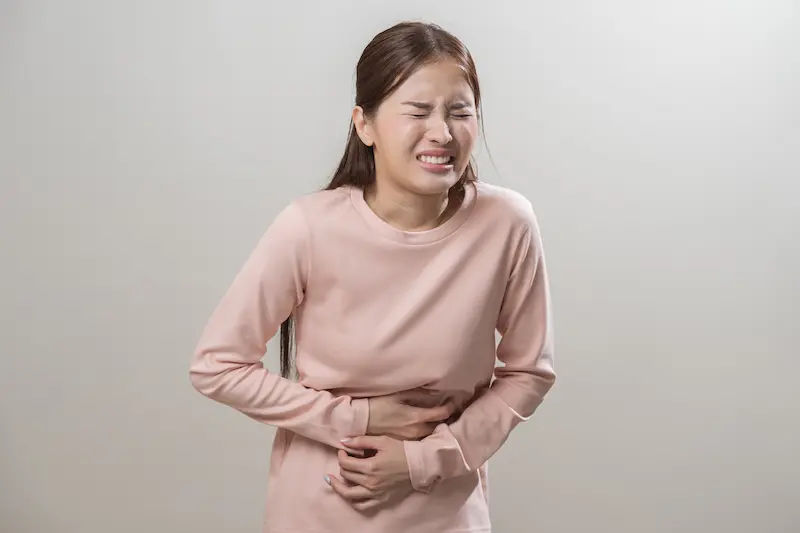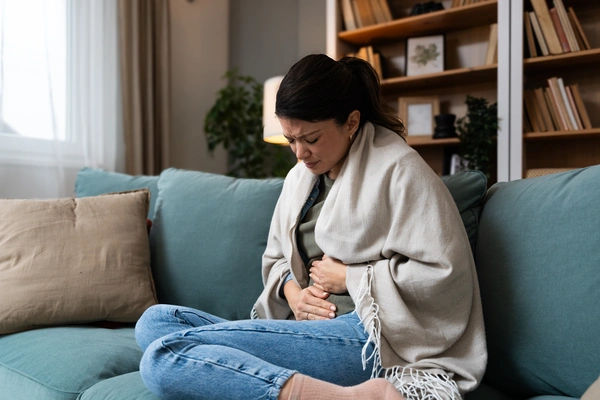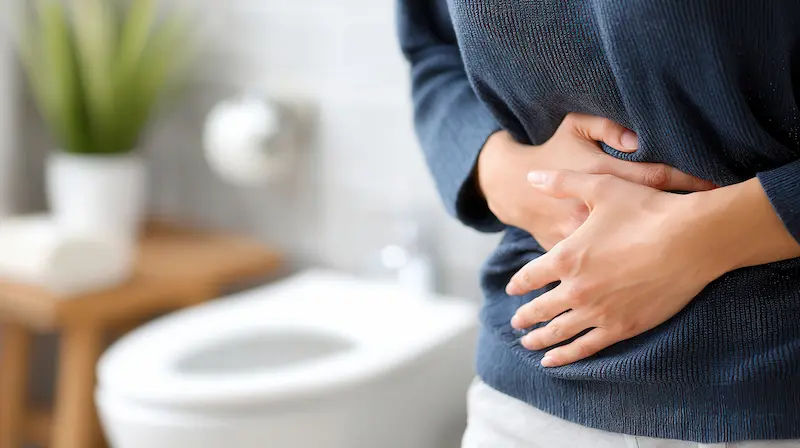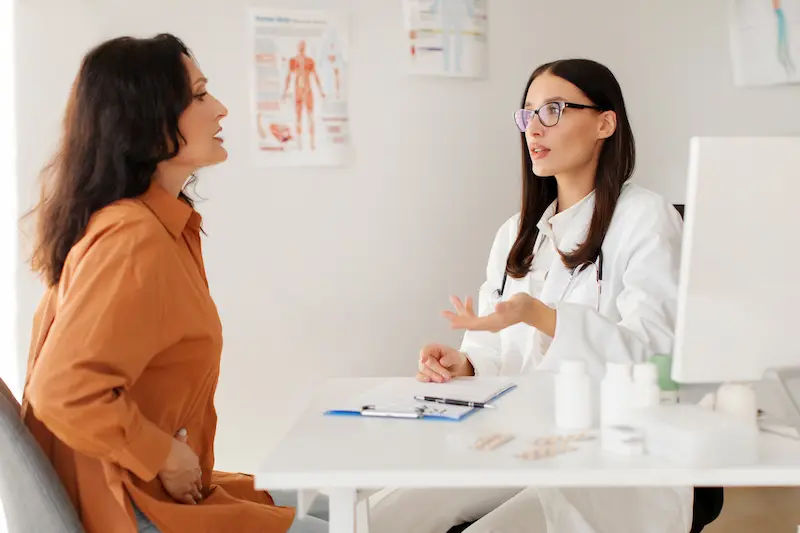Diarrhoea: Causes, Symptoms And Treatment Explained
Diarrhoea causes, symptoms, and treatments explained. Practical tips to protect digestive health and when to see a doctor.

Written by Dr. Md Yusuf Shareef
Reviewed by Dr. Shaik Abdul Kalam MD (Physician)
Last updated on 13th Jan, 2026

Introduction
Diarrhoea is one of the most common health problems in the world. Most cases are short-lived, but some can signal a more serious issue. Understanding diarrhoea causes helps you make smart choices to protect your digestive health, recover faster, and know when to seek medical care. In this guide, you’ll learn what triggers diarrhoea, how to manage it safely at home, and proven ways to prevent it.
What is diarrhoea?
Diarrhoea means having loose, watery stools three or more times in a day, or more often than is normal for you. It can occur on its own or with symptoms like cramping, bloating, nausea, or urgency.
Types of Diarrhoea
Let’s look at the common classifications of diarrhoea:
• Acute diarrhoea: Starts suddenly and lasts a few days (most common).
• Persistent diarrhoea: Lasts 14 days or longer.
• Chronic diarrhoea: Lasts more than four weeks and may come and go.
Doctors also sometimes describe:
• Watery diarrhoea
• Bloody diarrhoea (dysentery), which needs prompt medical attention
Common Diarrhoea Causes
Knowing the most likely diarrhoea causes can help you manage symptoms and prevent spread to others. Here are some causes of diarrhoea:
Infectious causes
Germs are the leading cause of acute diarrhoea. They spread through contaminated food, water, surfaces, or direct contact.
• Viruses: Norovirus, rotavirus, adenovirus, etc.
• Bacteria: E. coli, Salmonella, Shigella, Campylobacter, Vibrio, and others.
• Parasites: Giardia and Cryptosporidium.
Traveller’s diarrhoea is usually infectious, caused commonly by enterotoxigenic E. coli.
Noninfectious causes
• Food sensitivities and intolerances
• Medications
• Digestive disorders (IBS, IBD, coeliac disease, etc.)
• Hormonal/metabolic conditions
• Post-surgery changes
• Stress and anxiety
Who is at higher risk of complications?
• Infants and young children
• Adults over 65
• People who are pregnant
• People with weakened immune systems or chronic illnesses
Symptoms and Warning Signs
Here are some signs and symptoms:
Typical symptoms
Let’s review the symptoms to watch for:
• Loose, watery stools
• Abdominal cramping or pain
• Urgency, bloating, gas
• Nausea or vomiting
• Mild fever
Signs of dehydration (seek care if these appear)
Here’s what dehydration can look like:
• Thirst, dry mouth, dry skin
• Dark yellow urine or reduced urine
• Dizziness, weakness
• Sunken eyes, no tears in children
• Irritability or unusual sleepiness in children
Red flags that need prompt medical care
• Blood in stool or black stools
• High fever
• Severe abdominal pain
• Symptoms lasting more than two days (adults) or 24 hours (children)
• Persistent vomiting
• Signs of dehydration
• Diarrhoea after antibiotics
• Fever or blood after recent travel
Consult Top Specialists Here
How Doctors Diagnose Diarrhoea?
For most acute cases, testing isn’t needed. Tests may include:
• Stool tests
• Blood tests
• Breath tests or elimination diets
• Colonoscopy or imaging for chronic diarrhoea
Treatment and Home Care
Most cases are short-lived and manageable at home. Preventing dehydration is the priority. Here are some home care tips:
Rehydration comes first
• Oral rehydration solution (ORS) is best.
• Sip fluids: water, broths, diluted juices.
• Avoid alcohol and caffeine.
• Infants: continue breast milk or formula.
Food choices that are gentle on the gut
• Bland foods: bananas, rice, applesauce, toast, crackers, oatmeal, potatoes, plain chicken, eggs.
• Yoghurt with live cultures if tolerated.
• Avoid high-fat, spicy, or sugary foods.
• Return to a normal balanced diet as soon as possible.
Over-the-counter medicines
• Loperamide (with caution).
• Bismuth subsalicylate (Pepto-Bismol).
• Avoid NSAIDs on an empty stomach.
Prescription treatments
• Antibiotics only for specific infections.
• C. difficile requires targeted antibiotics.
• Chronic diarrhoea treatment depends on the underlying cause.
Probiotics and supplements
• Some probiotics may reduce duration of acute diarrhoea.
• Zinc supplementation may help children in certain settings.
Prevention: Protecting your Digestive Health
Let’s look at ways to prevent diarrhoea:
• Wash hands often.
• Practise safe food handling.
• Drink safe water.
• Travel smart: boil it, cook it, peel it, or leave it.
• Vaccinations (rotavirus, cholera where indicated).
• Eat a balanced, fibre-rich diet once recovered.
Special situations
Here are some special situations to consider:
Diarrhoea in babies and children
• Watch hydration closely.
• Continue breast milk/formula.
• Avoid OTC anti-diarrhoeals unless advised.
Older adults and people with chronic conditions
• Higher risk of dehydration; start ORS early.
• Seek care if no improvement within 48 hours.
After antibiotics
• If diarrhoea occurs during or after antibiotics, rule out C. difficile.
Consult Top Specialists Here
Consult Top Specialists Here

Dr. Chethan T L
General Physician/ Internal Medicine Specialist
5 Years • MBBS, MD, DNB (General Medicine)
Bengaluru
Apollo Medical Center, Marathahalli, Bengaluru

Dr. M L Ezhilarasan
General Practitioner
6 Years • MBBS
Visakhapatnam
Apollo 24|7 Clinic - Andhra Pradesh, Visakhapatnam

Dr. Rajib Ghose
General Physician/ Internal Medicine Specialist
25 Years • MBBS
East Midnapore
VIVEKANANDA SEBA SADAN, East Midnapore
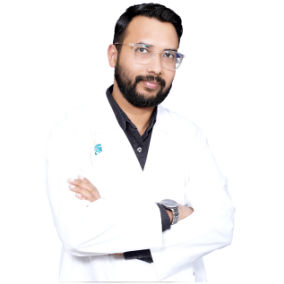
Dr. Aakash Garg
Gastroenterology/gi Medicine Specialist
12 Years • MBBS, DNB (Medicine), DrNB (Gastroentrology).
Bilaspur
Apollo Hospitals Seepat Road, Bilaspur
(150+ Patients)
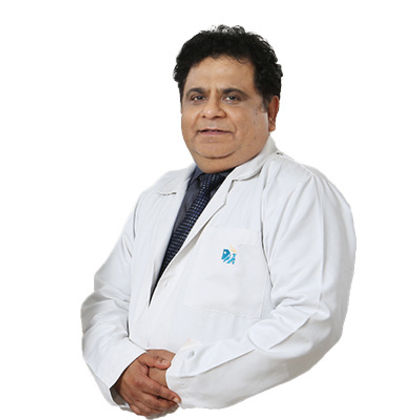
Dr. Anand Misra
General Physician/ Internal Medicine Specialist
14 Years • MBBS, DNB
Mumbai
Apollo Hospitals CBD Belapur, Mumbai
Consult Top Specialists Here

Dr. Chethan T L
General Physician/ Internal Medicine Specialist
5 Years • MBBS, MD, DNB (General Medicine)
Bengaluru
Apollo Medical Center, Marathahalli, Bengaluru

Dr. M L Ezhilarasan
General Practitioner
6 Years • MBBS
Visakhapatnam
Apollo 24|7 Clinic - Andhra Pradesh, Visakhapatnam

Dr. Rajib Ghose
General Physician/ Internal Medicine Specialist
25 Years • MBBS
East Midnapore
VIVEKANANDA SEBA SADAN, East Midnapore

Dr. Aakash Garg
Gastroenterology/gi Medicine Specialist
12 Years • MBBS, DNB (Medicine), DrNB (Gastroentrology).
Bilaspur
Apollo Hospitals Seepat Road, Bilaspur
(150+ Patients)

Dr. Anand Misra
General Physician/ Internal Medicine Specialist
14 Years • MBBS, DNB
Mumbai
Apollo Hospitals CBD Belapur, Mumbai
More articles from Diarrhea
Frequently Asked Questions
1) What should I drink when I have diarrhoea?
Use oral rehydration solution if possible. Otherwise, sip water, broths, and diluted juice. Avoid alcohol and caffeine. Very sugary drinks can worsen diarrhoea.
2) Is the BRAT diet still recommended?
You can start with bland foods like bananas, rice, applesauce, and toast for a short time. But return to a balanced diet as soon as you can tolerate it; prolonged restriction isn’t necessary.
When should I see a doctor?
Seek care if you have blood in stools, high fever, severe pain, signs of dehydration, diarrhoea lasting more than two days in adults or more than 24 hours in young children, or if symptoms start after antibiotics.
4) Can I take loperamide (Imodium) for diarrhoea?
Yes, for mild, non-bloody diarrhoea without high fever. Do not use it if you suspect a serious bacterial infection, have bloody stools, or recently took antibiotics unless your clinician says it’s safe.
5) How can I avoid traveler’s diarrhoea?
Wash hands often, eat foods that are thoroughly cooked and served hot, peel fruits yourself, use safe water, and avoid unpasteurized dairy. Talk to your clinician about preventive options if you’re at high risk.
